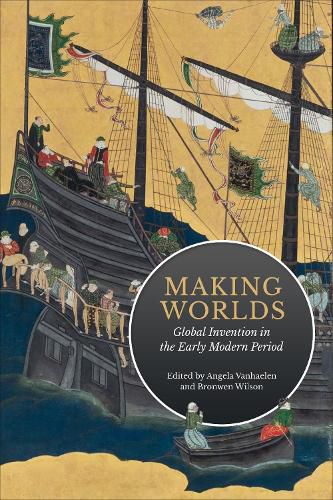Readings Newsletter
Become a Readings Member to make your shopping experience even easier.
Sign in or sign up for free!
You’re not far away from qualifying for FREE standard shipping within Australia
You’ve qualified for FREE standard shipping within Australia
The cart is loading…






Taking into account the destructive powers of globalization, Making Worlds considers the interconnectedness of the world in the early modern period.
This collection examines the interdisciplinary phenomenon of making worlds, with essays from scholars of history, literary studies, theatre and performance, art history, and anthropology. The volume advances questions about the history of globalization by focusing on how the expansion of global transit offered possibilities for interactions that included the testing of local identities through inventive experimentation with new and various forms of culture. Case studies show how the imposition of European economic, religious, political, and military models on other parts of the world unleashed unprecedented forces of invention as institutionalized powers came up against the creativity of peoples, cultural practices, materials, and techniques of making. In doing so, Making Worlds offers an important rethinking of how early globalization inconsistently generated ongoing dynamics of making, unmaking, and remaking worlds.
$9.00 standard shipping within Australia
FREE standard shipping within Australia for orders over $100.00
Express & International shipping calculated at checkout
Taking into account the destructive powers of globalization, Making Worlds considers the interconnectedness of the world in the early modern period.
This collection examines the interdisciplinary phenomenon of making worlds, with essays from scholars of history, literary studies, theatre and performance, art history, and anthropology. The volume advances questions about the history of globalization by focusing on how the expansion of global transit offered possibilities for interactions that included the testing of local identities through inventive experimentation with new and various forms of culture. Case studies show how the imposition of European economic, religious, political, and military models on other parts of the world unleashed unprecedented forces of invention as institutionalized powers came up against the creativity of peoples, cultural practices, materials, and techniques of making. In doing so, Making Worlds offers an important rethinking of how early globalization inconsistently generated ongoing dynamics of making, unmaking, and remaking worlds.